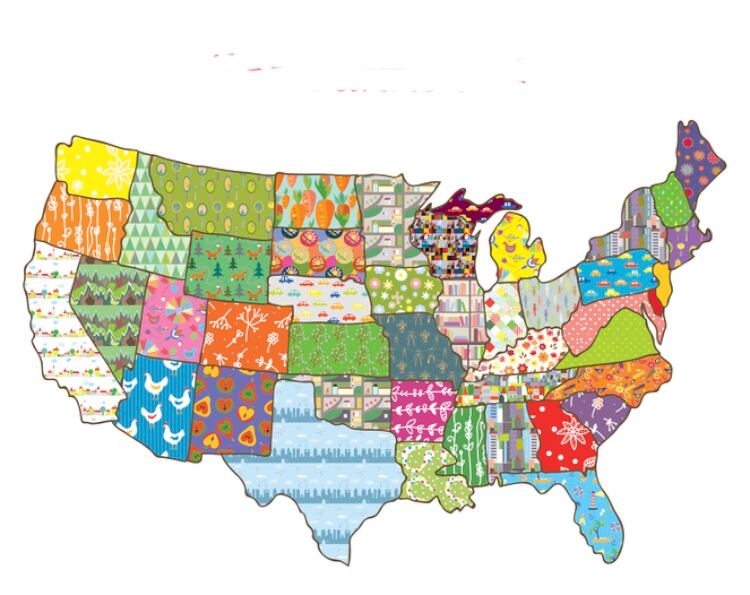The NCA is vehemently against the recently enacted Assembly Bill 418 - signed by California governor Gavin Newsom and known as the California Food Safety Act - to ban four additives from being used in food and beverages sold or manufactured in the Golden State.
The four in question include potassium bromate, propylparaben, red 3 and brominated vegetable oil (BVO), which can be found in as many as 12,000 US products, especially candies, but also packaged breads, baked goods and cake decorating gels.
Patchwork of inconsistent state requirements

“[The Bill] replaces a uniform national food safety system with a patchwork of inconsistent state requirements” that will not only “increase food costs” but has been “made without any scientific basis,” writes Downs.
“In this situation, we are faced with a lack of federal expertise and authority that is needed to dispel myths and consumer confusion permeating from California and correct misinformation related to the food ingredients and additives that were banned in that state.”
He is calling for urgent action by the FDA to “defend its legal, fiduciary and moral responsibility as our nation’s chief and centralised food safety agency.
“We believe it is past time for the FDA to lean into this conversation, because a state banning FDA approved food ingredients and additives undermines consumer trust and creates confusion around food safety.
“The broader food industry and American consumers need to know that the FDA is prepared to prevent that slippery slope from becoming a reality, and that it has done and will continue to do the job the Congress has given it for more than 117 years: to evaluate - at a national level - the safety of food ingredients and additives.”
Keep food safety laws in the hands of food safety experts, not politicians

Downs contends Governor Newsom and the California legislature - in enacting AB 418 - “have completely overstepped their area of expertise.
“Decisions regarding the safety of the US food supply belong in the hands of our foremost food safety experts, not politicians,” he emphasised.
“Undoubtedly, the action in California has led - and will lead - to similar legislative proposals in other states that could result in bans of additional food ingredients that completely decentralises FDA’s authority and create a massive patchwork of requirements for US food manufacturers.”
On this point, he notes there are limited or no alternatives for some of the ingredients subject to the California ban and its estimated to “take a decade or longer to develop and obtain FDA approval for safe replacements.”
Although banned in many other countries around the globe, the four are oft-used by the US bakery and snacks industries.
- Potassium bromate (KBrO3) is considered an excellent dough improver and maturing agent. It also bleaches the dough, increases loaf volume and improves texture.
- Propylparaben (CAS no. 94-13-3) is a stable, non-volatile antimicrobial preservative found in cakes, cookies, eclairs, muffins and even tortilla chips.
- Red dye No. 3 is prized for imparting a bright, cherry-red colour to candies, cookies, cake mixes, frostings and more.
- Brominated vegetable oil (BVO) is used primarily to help emulsify citrus-flavoured soft drinks, preventing them from separating during distribution.
“There has been a significant amount of public attention and media coverage given to the food ingredient and additive ban in California, including some who say that the state is being proactive by moving faster than FDA,” writes Down.
“But much of this commentary is built on falsehoods that are unfortunately all too easy to accept at face value and has been made by those who do not know or understand FDA’s review processes.
“Unlike FDA’s processes, the legislative process is not transparent and does not solicit and consider stakeholder feedback to make a determination based on the totality of scientific and real-world evidence.”
While the Act does not go into effect until January 2027 to give companies time to reformulate their products, the ban will undoubtedly impact their bottom line as “the cost of reformulation will be substantial.”
Get off the sidelines

However, Down believes it will be the American consumer who ends up with the short straw, as those costs will ultimately be “passed on to consumers in the form of higher prices,” not ideal in today’s inflationary environment.
“Food safety is the number one priority for US confectionery companies and we do not use any ingredients in our products that do not comply with the FDA’s strictest safety standards.
“It’s time for FDA to get off the sidelines and clear up this misinformation, because the fact of the matter is that California is out of its depth when it comes to national food safety standards and regulatory processes. That expertise and authority rests with the FDA alone.”


